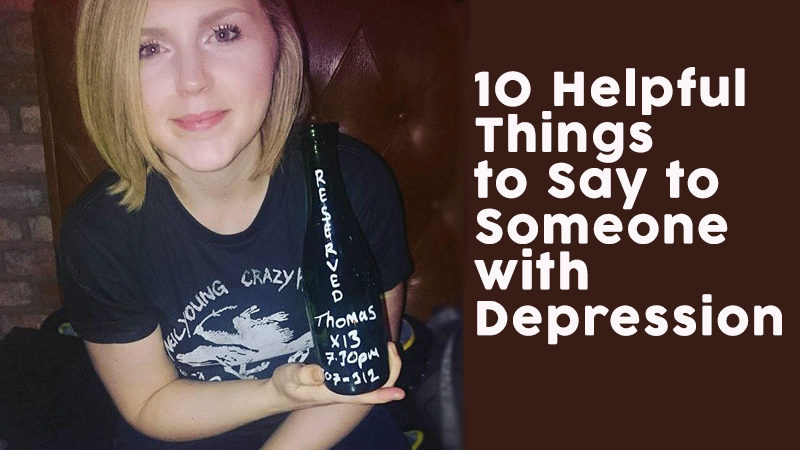Talking to someone with depression can be difficult and often things intended to be helpful can come across as patronising or dismissive to the person suffering. I’ve put together a list of things that could be misconstrued and taken the wrong way.
If you’re looking for further help check out our post “10 helpful things to say to someone with depression”
1. “Maybe you just need a holiday”
Sometimes depression can be mistaken for stress, especially to someone who has never experienced depression themselves. Lots of people deal with stress on a daily basis and over time may need a break to recover. For some people a holiday is just the ticket, but it’s important to understand that depression is a serious condition that cannot be rectified easily or quickly.
2. “Are you taking your medication?”
Although antidepressants are widely available and recommended, it’s never guaranteed to improve a person’s mood. Sometimes what works for a hundred people won’t work for a few individuals. It’s often a process of trial and error and it can be hard to identify which form of treatment has made the most impact.
3. “You’ve got nothing to be depressed about”
The truth is that many people who have mental health problems live a seemingly wonderful life. Depression doesn’t always come as a result of circumstances and certainly doesn’t relate to career success or your monthly salary. We don’t know why some people are more susceptible to the illness than others but it’s painfully real and deserves attention no matter what the person’s social or cultural status.
4. “Everyone gets stressed sometimes, just deal with it”
Yes we all get stressed and everyone copes with difficult situations in their own unique way. The problem comes when day-to-day stress becomes unbearable, to the point where the person loses interest in their hobbies or find it difficult to cope with everyday tasks. The straw that breaks the camel’s back may appear to be something minor, but could be the result of a string of events and shouldn’t be dismissed as insignificant.
5. “I saw you at a party, you must be feeling better now!”
If someone feels well enough to attend a party that doesn’t necessarily mean they are well enough to return to work or stop taking medication. The road to recovery can be plain sailing for weeks or even months at a time and then out of nowhere a relapse can occur. Also, some people find comfort in distracting themselves with activities,e.g. attending social functions or going to the gym.
6. “Try not to worry too much”
This phrase can roll off the tongue a little too often when it comes to comforting someone with anxiety, depression or other conditions. Most people tend to worry from time-to-time but mental health problems go hand-in-hand with incessant over-thinking. It’s part of the problem, so you might as well be saying something as unhelpful as “try not to be so sad all the time”.
7. “You have to want to get better”
From the outside looking in it can seem like someone with depression is just wallowing in their own self-pity. It can be impossible for others to understand that for them there often feels like there’s no hope. Even when help is on offer and despite knowing there are many successful forms of treatment available, the feeling of hopelessness that comes with depression can feel untreatable. Simply wanting to get better isn’t that easy.
8. “Suicide is the coward’s way out”
Hearing someone judge a person’s actions whilst they are in a depressed state can be very upsetting. Having a mental health problem means that you aren’t in your regular, healthy state of mind and may make decisions that you later regret or feel detached from. Suicidal thoughts are common and should be taken seriously as they can often feel like the only way out.
BIO
Fiona Thomas is a UK blogger who suffers from depression and generalised anxiety disorder. She is a keen advocate of mental health and uses her blog to explore these issues, help others feel less alone and break down the stigma around the subject. She talks about how her passion for writing – along with other techniques – help her to live with depression and minimise the symptoms of anxiety and depression.
For more tips and insight into living with mental health visit www.fionalikestoblog.com



